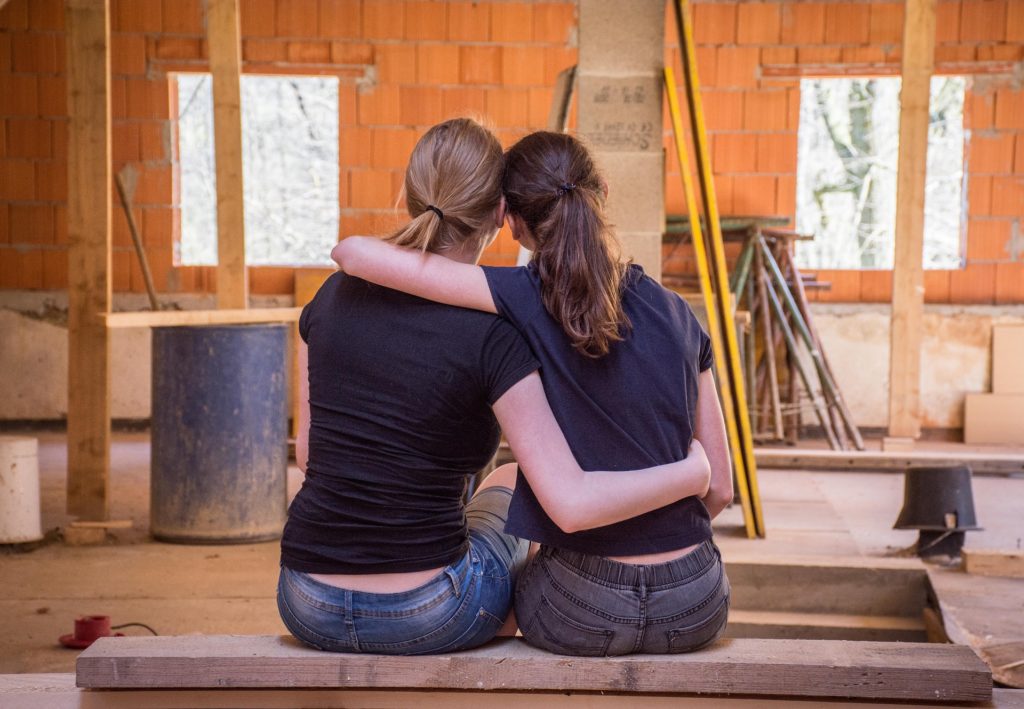- Calls to this hotline are currently being directed to Within Health, Fay or Eating Disorder Solutions
- Representatives are standing by 24/7 to help answer your questions
- All calls are confidential and HIPAA compliant
- There is no obligation or cost to call
- Eating Disorder Hope does not receive any commissions or fees dependent upon which provider you select
- Additional treatment providers are located on our directory or samhsa.gov
Peer Support for Eating Disorders: Does it Work?

Contributed by Staff Members of Project HEAL
Project HEAL has grown tremendously over the past few years, primarily due to the grassroots growth of our chapters – people from all over the country at different stages of eating disorder recovery.
Seeing our potential to make a more significant impact, we knew we had to expand our mission, but first, wanted to get insight from our community on what they really needed in recovery.
We spent last fall conducting interviews with 50 diverse chapter members about their desires in recovery.
At the end of that listening tour, we heard loud and clear that our community wanted mentorship. But, we had to ask ourselves “will it actually help?”
Peer Support and Sharing Personal Experiences
We know peer support makes a difference for substance abuse recovery, managing other mental health challenges, and improving quality of life for those with chronic illness [1].
We also know from personal experience that building relationships with other people who understand what you’re going through in eating disorder recovery can be life-changing.
A big part of the reason Kristina and Liana founded Project HEAL is that they had no role models to look up to who showed that full recovery was possible. They became each other’s support system and pushed one another to get better.
Communities of HEALing
Grace, too, had a compelling experience of informal peer support. And we’re not alone. Mentees in the Communities of HEALing program have told us that it’s “been a game changer,” that “finally getting ‘real life’ support and accountability” fills a gap between the skills we build in therapy and creating the kind of meaningful life we grow day by day in recovery.

We decided to build Communities of HEALing because our community told us that it is necessary and essential. But as we grow this program, we have a responsibility not just to respond to that need, but to make sure that the thing we think will work actually does.
The expansion of research on eating disorders in the last decade has yielded incredible insight.
We’ve learned that that neurobiology and genetics are a significant contributor [2], that family support is crucial, and that technology can lead to better outcomes in treatment [3].
But despite all of this learning, no significant research has been done on peer support for eating disorders. We’re about to change that.
During this phase of the Communities of HEALing program, we’re partnering with Columbia University’s Center for Eating Disorders to conduct a randomized controlled trial of COH program participants.
Providing Feedback on Progress
Mentees in the program will fill out a form each week keeping our research team up to date on how they’re doing, and when the study is finished, we’ll be able to look at the big pictures of all of the data collected to understand if and how the program is working.
What do we mean by “working”? In truth, we mean a number of things. Most obviously, we want to see if having a mentor reduces participants’ use of eating disorder behaviors.
We’re using a measure called the Eating Pathology Symptoms Inventory to measure reductions in 8 areas: Body Dissatisfaction, Binge Eating, Cognitive Restraint, Purging, Restricting, Excessive Exercise, Negative Attitudes Towards Obesity and Muscle Building.
But we don’t just think of recovery as the use of behaviors. We also want to understand if participants feel that their quality of life is improved by having a mentor.
Here, we’re using the Eating Disorder Quality of Life Assessment to look at the impact of their eating disorder on psychological, physical, cognitive, financial, and work/ school domains.
Peer Support
Finally, relapse is a big problem in early eating disorder recovery, so we want to see if participating in this program reduces relapse, hospital readmissions, and traditional treatment utilization.

This first study on Communities of HEALing is just the beginning–we expect that it will initiate avenues of research that have never been explored before, looking in part to people in recovery to show us what we need to learn next.
For us, Communities of HEALing is about building a network of recovering people who are dedicated to supporting those in early recovery, backed by the best practices and evidence-based approaches that will help them do it well.
We are committed to building a program that truly makes peer support work for eating disorder recovery.
To get support in your recovery, and help us learn about the kinds of support that work, you can enroll to be a mentee in the program. For more information, check out our website.
To dedicate your time to support those in early recovery, whether you have personally experienced eating disorder or not, you can apply to be a mentor.
We are so excited to build with you.
References:
[1] Repper J, Carter T. A review of the literature on peer support in mental health services. J Ment Health. 2011;20(4):392-411. doi: 10.3109/09638237.2011.583947. PubMed PMID: 21770786.
[2] Kaye, Walter. “Neurobiology of anorexia and bulimia nervosa.” Physiology & behavior 94.1 (2008): 121-135.
[3] Lock, James et al. “Randomized clinical trial comparing family based treatment to adolescent focused individual therapy for adolescents with anorexia nervosa.” Archives of general psychiatry 67.10 (2010): 1025–1032. PMC. Web. 19 Oct. 2016.
The opinions and views of our guest contributors are shared to provide a broad perspective of eating disorders. These are not necessarily the views of Eating Disorder Hope, but an effort to offer discussion of various issues by different concerned individuals.
We at Eating Disorder Hope understand that eating disorders result from a combination of environmental and genetic factors. If you or a loved one are suffering from an eating disorder, please know that there is hope for you, and seek immediate professional help.
Published on November 20, 2017.
Reviewed By: Jacquelyn Ekern, MS, LPC on November 20, 2017.
Published on EatingDisorderHope.com

The EatingDisorderHope.com editorial team comprises experienced writers, editors, and medical reviewers specializing in eating disorders, treatment, and mental and behavioral health.

